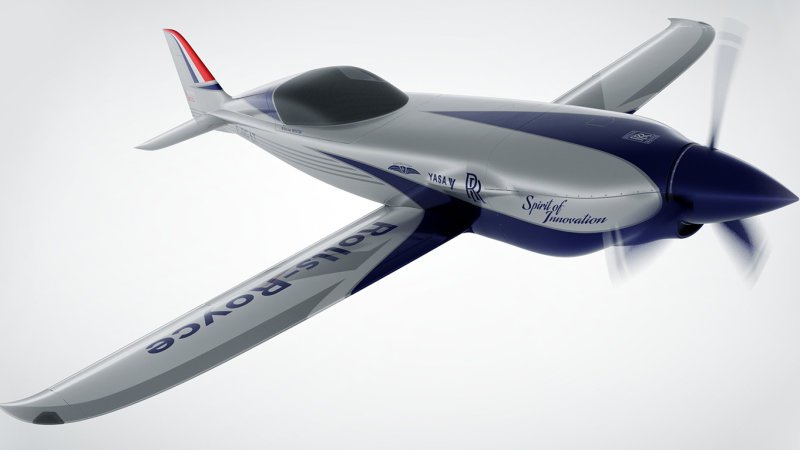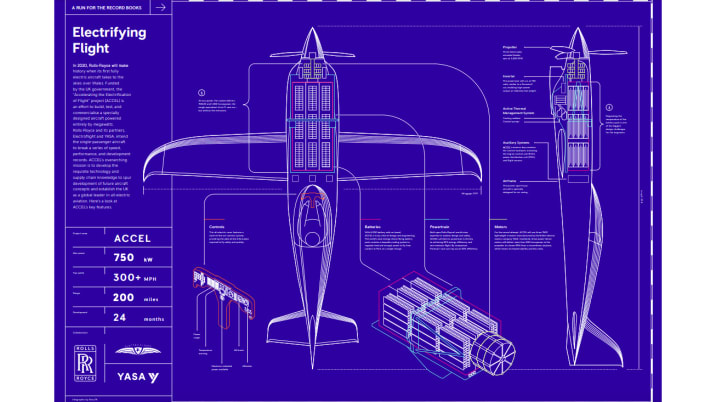Rolls-Royce hopes to set speed record with electric airplane

Way back in 1931, Rolls-Royce helped Britain claim the Schneider Trophy, awarded to the Supermarine S.6B racing airplane after it set a speed record of 343 miles per hour. Of course, nowadays that speed isn't particularly impressive. What would be a milestone, though, is hitting such a velocity with an airplane powered by electricity. And that's exactly what Rolls-Royce plans to do as part of its ACCEL program (Accelerating the Electrification of Flight), which is partially funded by the U.K. government.
The current record for an electric airplane stands at 210 mph, set in 2017 by the German engineering company Siemens. Rolls-Royce hopes to surpass the 343-mph mark it set back in 1931 with the Supermarine. "This plane will be powered by a state-of-the-art electrical system and the most powerful battery ever built for flight," says Matheu Parr ACCEL Project Manager for Rolls-Royce.
The plane's battery pack will be made from 6,000 lithium ion cells, and it will be the most energy-dense unit ever assembled for an aircraft. Not only will it provide the power to surpass 300 mph, a single charge will allow the plane to travel up to 200 miles, sufficient to get from London to Paris. Three 750-volt electric motors from YASA are rated at more than 500 horsepower combined, and they'll spin a custom-designed propeller mounted at the front of the plane.
There's a lot of technology wrapped up in this project. "We're monitoring more than 20,000 data points per second, measuring battery voltage, temperature, and overall health of the powertrain," says Parr. Rolls-Royce brought in experts from a variety of fields for this project, including some from the Formula E racing series. The team expects to begin testing this year, and to make a run for the record books in 2020.

